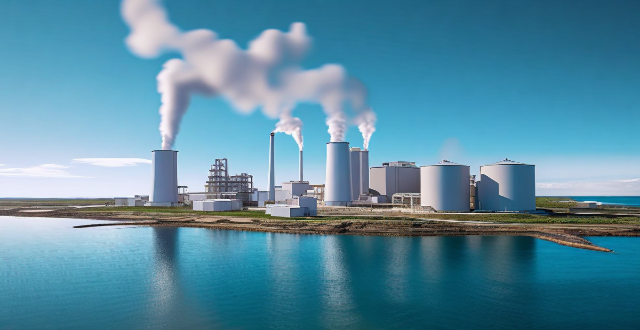Greenhouse gas emissions, including carbon dioxide (Greenhouse gas emissions, including carbon dioxide (e (CH4), trap heat in the Earth's atmosphere, leading to an increase in global temperatures. This process is known as the greenhouse effect. Human activities have increased the concentration of these gases, enhancing the greenhouse effect and causing global warming. The enhanced greenhouse effect leads to various effects such as global warming, ocean acidification, impact on ecosystems, and human health and well-being. To mitigate these effects, it is essential to reduce our carbon footprint by adopting sustainable practices such as using renewable energy sources, improving energy efficiency, protecting natural habitats, promoting sustainable agriculture practices, and encouraging eco-friendly habits.

How do Greenhouse Gas Emissions Affect Climate Change?
Greenhouse gas emissions play a crucial role in the phenomenon of climate change. These gases, including carbon dioxide (CO2), methane (CH4), nitrous oxide (N2O), and fluorinated gases, trap heat in the Earth's atmosphere, leading to an increase in global temperatures. This process is often referred to as the greenhouse effect.
The Greenhouse Effect
The greenhouse effect is a natural process that warms the Earth's surface. When sunlight reaches the Earth's atmosphere, some of it is reflected back to space and the rest is absorbed by the Earth's surface and warms it. The warmed surface then radiates heat back towards space, but some of this heat is trapped by greenhouse gases in the atmosphere and re-radiated back towards the Earth's surface. This process keeps the Earth's temperature within a range suitable for life.
However, human activities have increased the concentration of greenhouse gases in the atmosphere, enhancing the greenhouse effect and causing global warming.
Effects of Enhanced Greenhouse Effect
1. Global Warming
The enhanced greenhouse effect leads to an increase in global temperatures, also known as global warming. This can cause:
- Melting of polar ice caps and glaciers, leading to rising sea levels
- Changes in precipitation patterns, causing droughts in some areas and floods in others
- Extreme weather events such as heatwaves, heavy rainfall, and hurricanes
2. Ocean Acidification
Increased CO2 in the atmosphere dissolves into the ocean, forming carbonic acid. This lowers the pH of the ocean, making it more acidic. Ocean acidification can harm marine life, especially shellfish and coral reefs.
3. Impact on Ecosystems
Changes in temperature and precipitation patterns can have significant impacts on ecosystems, affecting plant growth, animal migration patterns, and overall biodiversity.
4. Human Health and Well-being
Climate change can also affect human health and well-being by increasing the risk of heat-related illnesses, waterborne diseases, and respiratory problems due to poor air quality. It can also lead to food and water scarcity, displacement of people due to rising sea levels or extreme weather events, and economic losses.
Mitigating Greenhouse Gas Emissions
To mitigate the effects of climate change caused by greenhouse gas emissions, it is essential to reduce our carbon footprint by adopting sustainable practices such as:
- Using renewable energy sources like solar, wind, and hydro power instead of fossil fuels
- Improving energy efficiency in buildings, transportation, and industry
- Protecting and restoring forests and other natural habitats that absorb CO2 from the atmosphere
- Promoting sustainable agriculture practices that reduce CH4 emissions from livestock and N2O emissions from fertilizer use
- Encouraging individuals to adopt eco-friendly habits like reducing meat consumption, using public transportation, and recycling
By taking these actions, we can help reduce greenhouse gas emissions and slow down the pace of climate change, ensuring a more sustainable future for ourselves and generations to come.